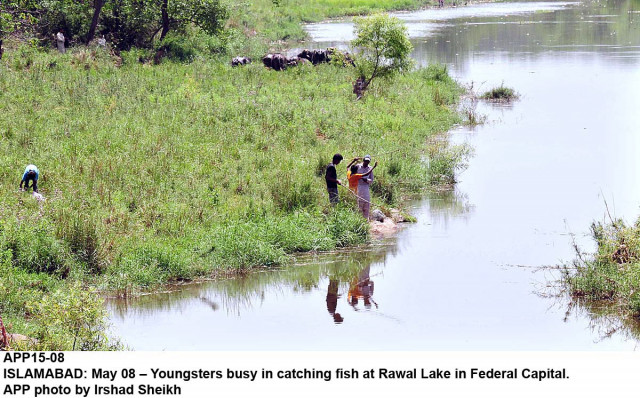Poisoning Rawal Lake
Rawal Lake has become poisoned because of the chronic long-term ineptitude of the bodies charged with its stewardship

The reason for the pollution is clear enough. Residential garbage, effluents from the Diplomatic Enclave, solid and liquid wastes from buffalo sheds and poultry farms on the Murree Hills above it and wastes from the communities of Shahadra village, the Bari Imam Complex Bani Gala and Quaid-e-Azam University all contribute to the degradation of a crucial resource. This is to the despair of the Environmental Protection Agency, which lays the blame squarely at the door of the civic authorities responsible for the running of the twin cities. They have collectively failed to finalise a PC1 for the cleaning of the Rawal Lake and the problem is magnified by the late arrival of winter rains that would produce run-off water from the hills and ‘flush the system’. Rawal Lake has become poisoned because of the chronic long-term ineptitude of the bodies charged with its stewardship. Short-term measures such as the plugging of illegal sewer lines have proved ineffective — mainly because residents of the area have unplugged them again. Time to clean up your act, CDA.
Published in The Express Tribune, December 29th, 2014.
Like Opinion & Editorial on Facebook, follow @ETOpEd on Twitter to receive all updates on all our daily pieces.















COMMENTS
Comments are moderated and generally will be posted if they are on-topic and not abusive.
For more information, please see our Comments FAQ